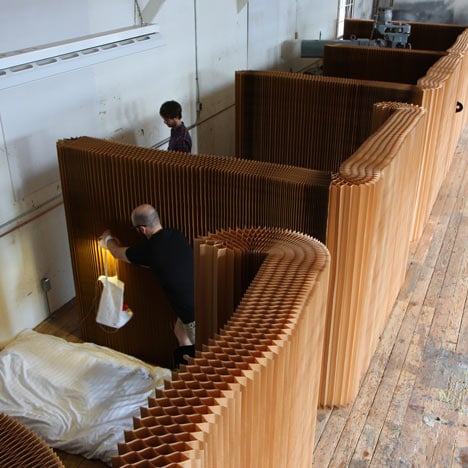
Softshelter by Molo
Canadian studio Molo has designed a system of paper partitions that provide privacy at shelters in the wake of a disaster.
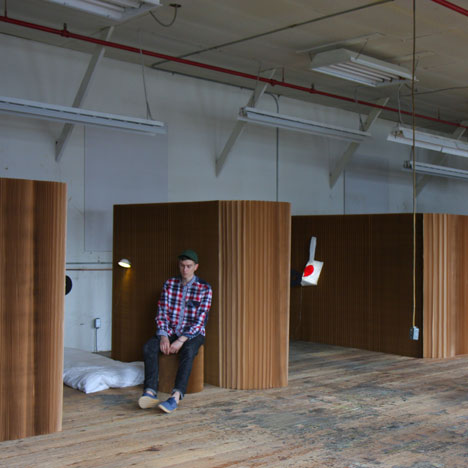
Called Softshelter, the walls create a sense of community and personal space despite the bleak conditions of emergency shelters.
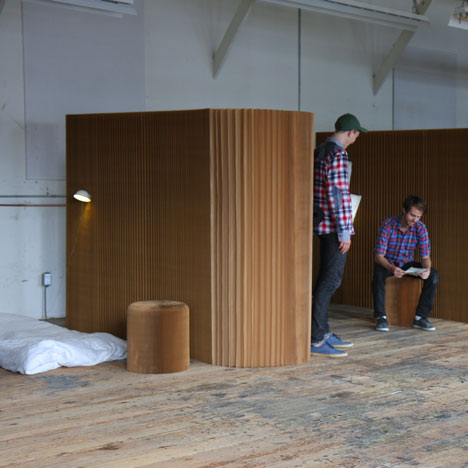
Like an accordion, the kraft paper walls can expand and contract until they meet the edge of another wall.
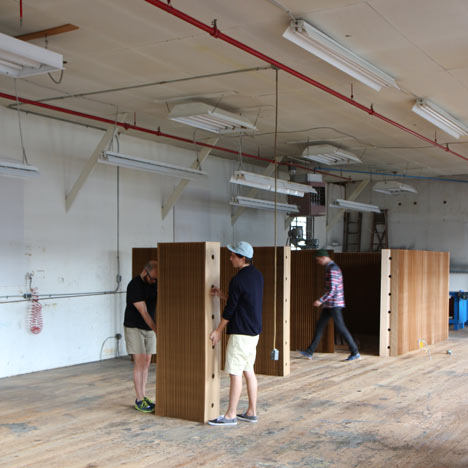
The walls are joined together by detachable magnetic panels and therefore require only a few people to assemble with minimal instructions and no tools.
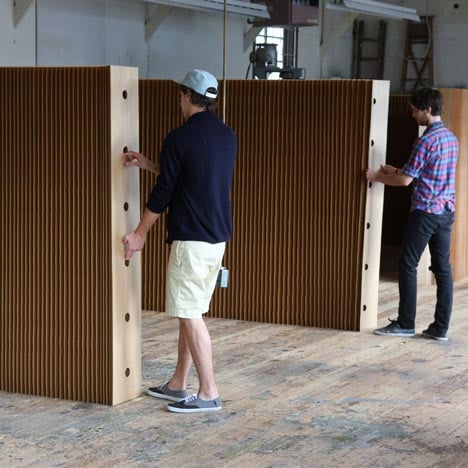
Each flat-packed unit can arrive at the shelter ready for immediate set-up. See more stories on disaster relief »
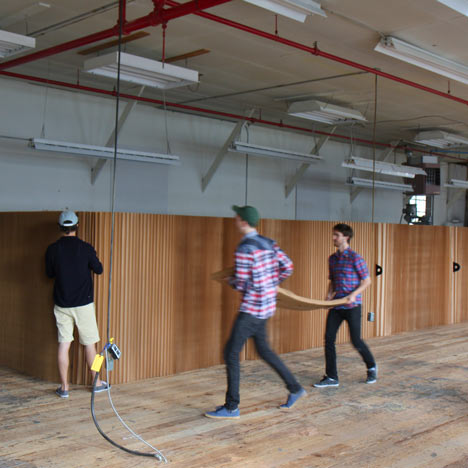
Rooms can stand alone or be clustered together in order to create corridors, conjoined rooms, and common rooms.
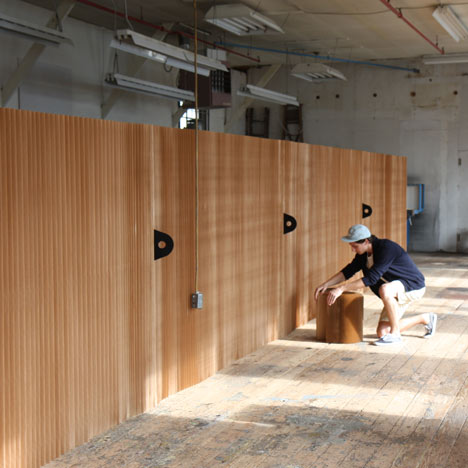
The flexible nature of the walls allows for placement even in irregular spaces.
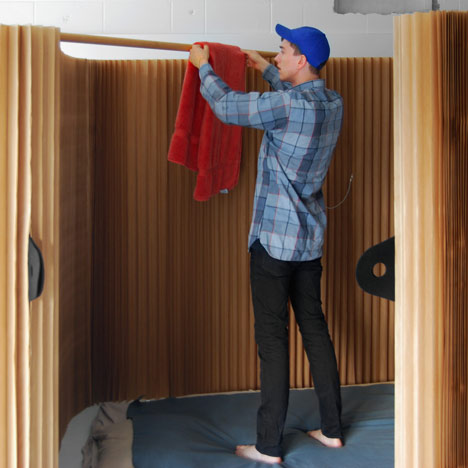
A simple 12-volt power cord can be strung through the walls to reach all adjoining units.
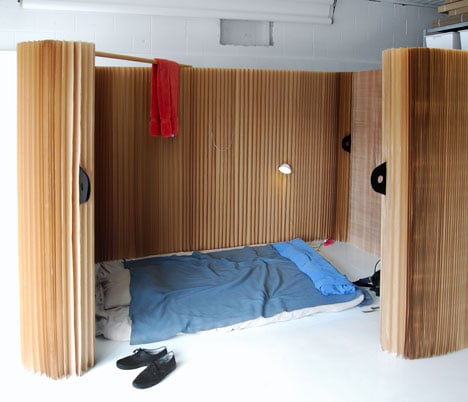
Other relief efforts for victims of natural disasters include Shigeru Ban's temporary housing project and a design for solar-powered emergency tents.
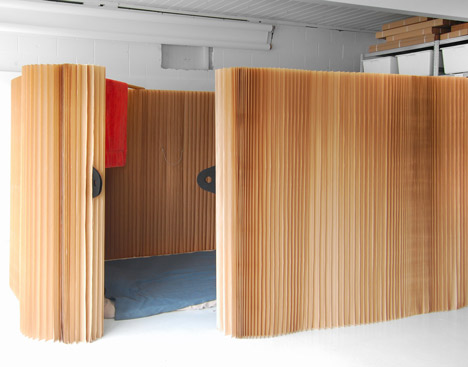
See more projects on paper enclosures here.
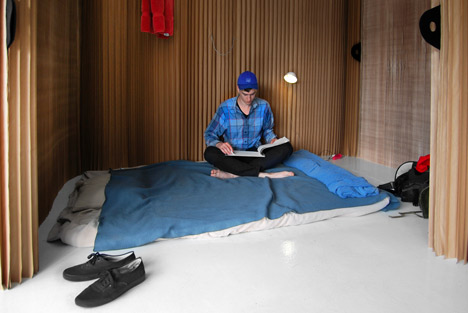
Here is some more information from the designers:
softshelter
a solution to homelessness caused by disaster
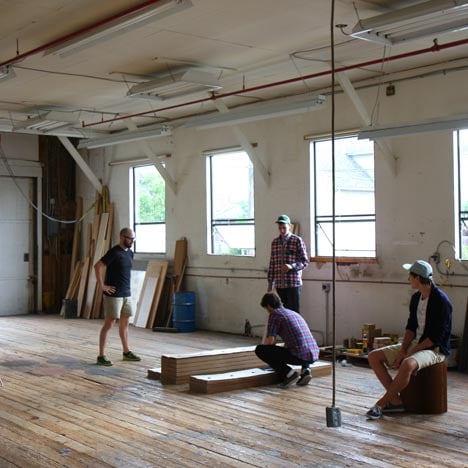
softshelter is a system for creating personal space within a larger shelter area in order to provide individuals and families with a sense of privacy and encourage community-building in the days following a disaster.

Quick start guide
softshelter is part of molo’s ongoing research-driven exploration of materials, fabrication techniques and space-making with a focus on enhancing common daily ritual and flexible use of space.

Deployment
We are currently preparing a study in which a member of the molo team will occupy softshelter; the flexible shelter will be set up in molo’s workshop space from now through September. We will share the experience through a series of stories as the project progresses. softshelter will soon be available as a fully deployable system. By occupying the shelter as it is being designed, we will be able to make discoveries that allow us to further refine a system that, hopefully, will one day be able to assist in disaster relief in an immediate and tangible way.

Setting up a room

Setting up a community of rooms

Room types

Connection types

Form making

Room conditions

Using the door

Home-making accessories

Community accessories

12V power